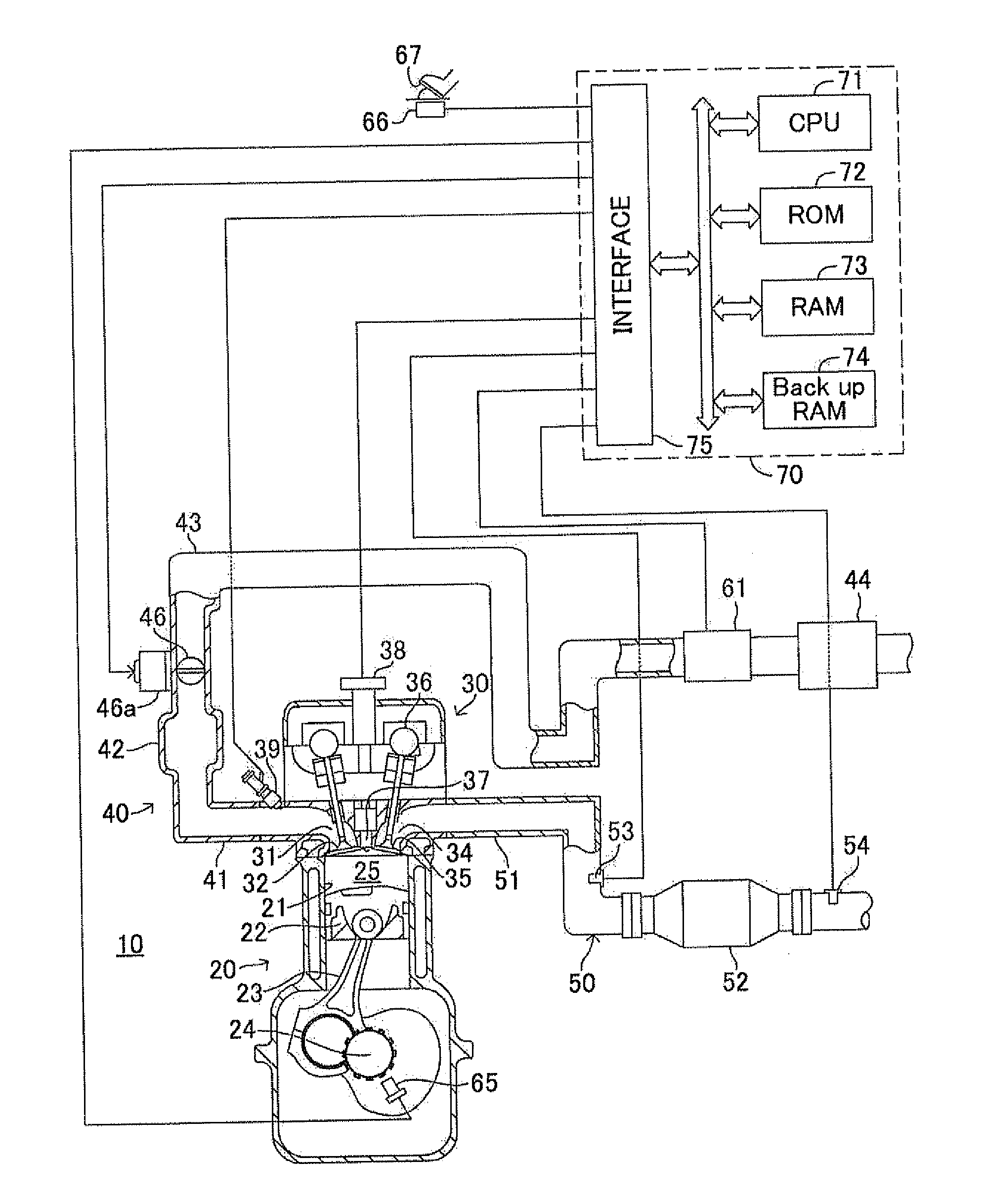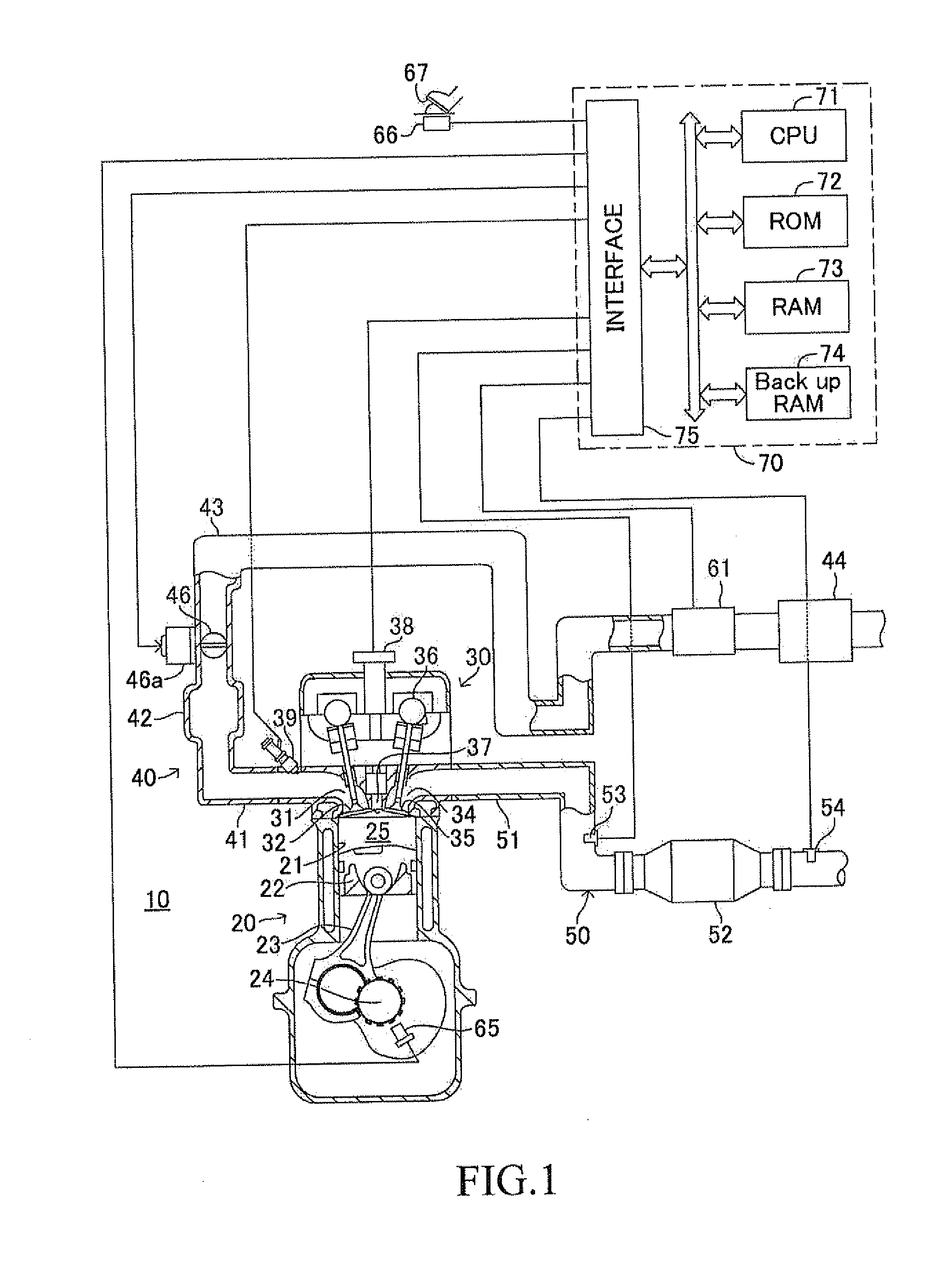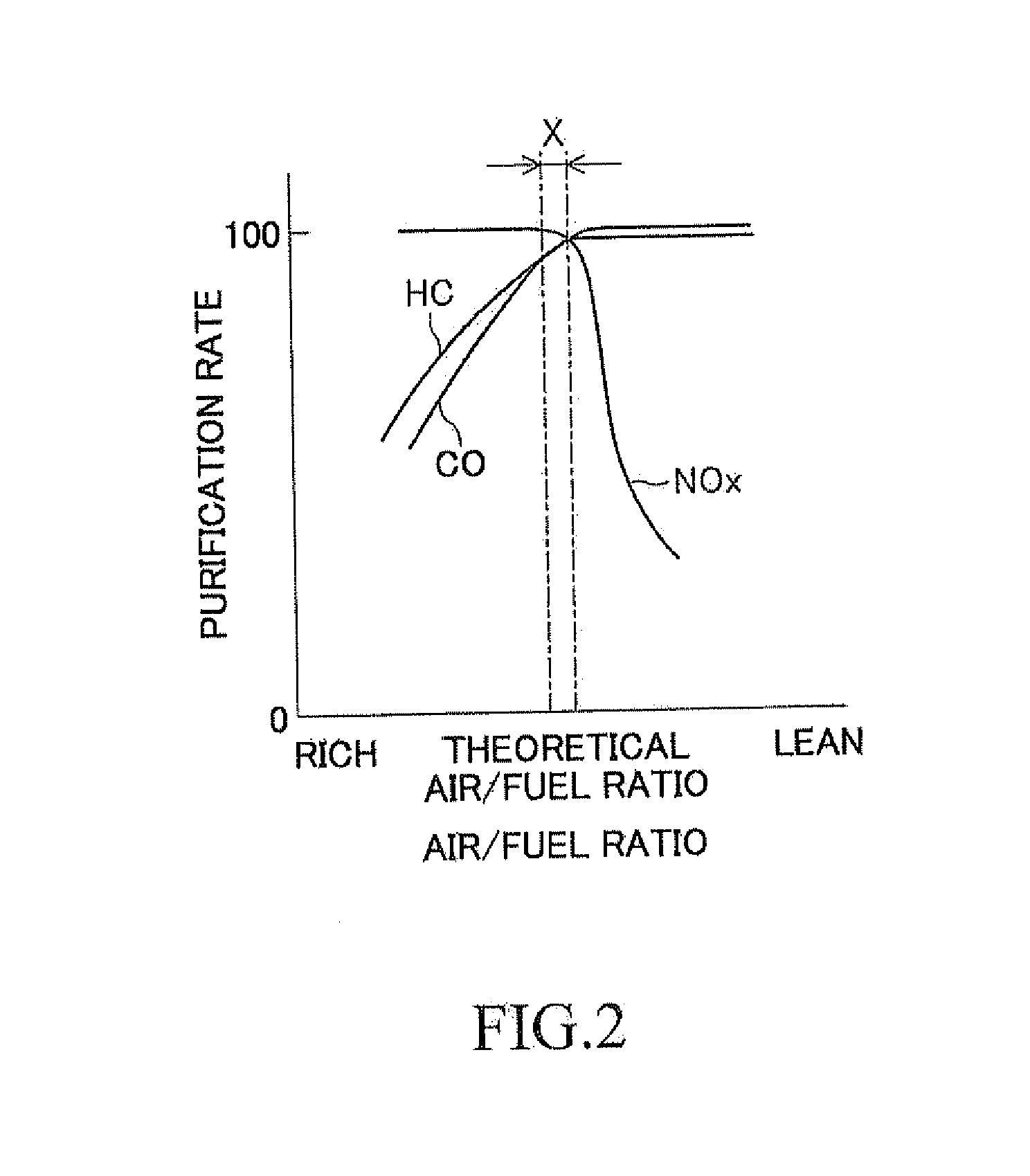Air/fuel ratio control device for internal-combustion engine
a technology of air/fuel ratio and control device, which is applied in the direction of electric control, machines/engines, mechanical apparatus, etc., can solve the problems of thermal degradation in the three-way catalyst, thermal degradation in the three-way catalyst, and so as to achieve further efficient suppression of suppress thermal degradation in the catalyst
- Summary
- Abstract
- Description
- Claims
- Application Information
AI Technical Summary
Benefits of technology
Problems solved by technology
Method used
Image
Examples
first embodiment
[0053]Incidentally, as described above, the three-way catalyst 52 may simultaneously purify NOx, CO, and HC at a high purification rate when the air / fuel ratio of the exhaust gas which flows thereinto is near the theoretical air / fuel ratio. Accordingly, from the viewpoint that the high purification rate in the three-way catalyst is ensured, it is desirable that the air / fuel ratio of the air / fuel mixture formed in the combustion chamber 25 be controlled to be the theoretical air / fuel ratio. Therefore, in the embodiment (hereinafter, referred to as a ‘first embodiment’), when the running state of the internal-combustion engine (hereinafter, this will be referred to as an ‘engine running state’) is in a normal state, stoichiometric control is executed as below so that the air / fuel ratio of the air / fuel mixture is controlled to be the theoretical air / fuel ratio.
[0054]That is, in the normal stoichiometric control of the first embodiment, the amount of air which is suctioned to the combus...
second embodiment
[0102]That is, as described above, the three-way catalyst 52 has the oxygen absorbing and discharging ability in which the three-way catalyst absorbs oxygen in the exhaust gas when the air / fuel ratio of the exhaust gas flowing thereinto is leaner than the theoretical air / fuel ratio and discharges oxygen absorbed thereto when the air / fuel ratio of the exhaust gas flowing thereinto is richer than the theoretical air / fuel ratio. Accordingly, when the air / fuel ratio of the exhaust gas which flows into the three-way catalyst is leaner than the theoretical air / fuel ratio, the three-way catalyst absorbs oxygen in the exhaust gas. However, there is a limitation in the amount of oxygen which may be absorbed to the three-way catalyst by the unit of time. For this reason, even when the air / fuel ratio of the exhaust gas flowing into the three-way catalyst is leaner than the theoretical air / fuel ratio, there is a possibility that the three-way catalyst may not absorb the entire oxygen in the exh...
third embodiment
[0154]Next, another example of a flowchart which executes the control of the air / fuel ratio of the air / fuel mixture will be described. In this example, the flowcharts of FIGS. 19 to 22 and 5 are used. Furthermore, since the flowchart of FIG. 5 has been already described, the description thereof will not be repeated.
[0155]When the routine of FIG. 19 is started, first, in step 600, it is determined whether the execution of the stoichiometric control is demanded. Here, when it is determined that the execution of the stoichiometric control is demanded, the routine proceeds to step 601 and the steps thereafter. On the other hand, when it is determined that the execution of the stoichiometric control is not demanded, the routine proceeds to step 113 and the steps thereafter of FIG. 5 and the rich control is executed or the fuel cut control is executed.
[0156]In step 600 of FIG. 19, when it is determined that the execution of the stoichiometric control is demanded and the routine proceeds ...
PUM
 Login to View More
Login to View More Abstract
Description
Claims
Application Information
 Login to View More
Login to View More - R&D
- Intellectual Property
- Life Sciences
- Materials
- Tech Scout
- Unparalleled Data Quality
- Higher Quality Content
- 60% Fewer Hallucinations
Browse by: Latest US Patents, China's latest patents, Technical Efficacy Thesaurus, Application Domain, Technology Topic, Popular Technical Reports.
© 2025 PatSnap. All rights reserved.Legal|Privacy policy|Modern Slavery Act Transparency Statement|Sitemap|About US| Contact US: help@patsnap.com



